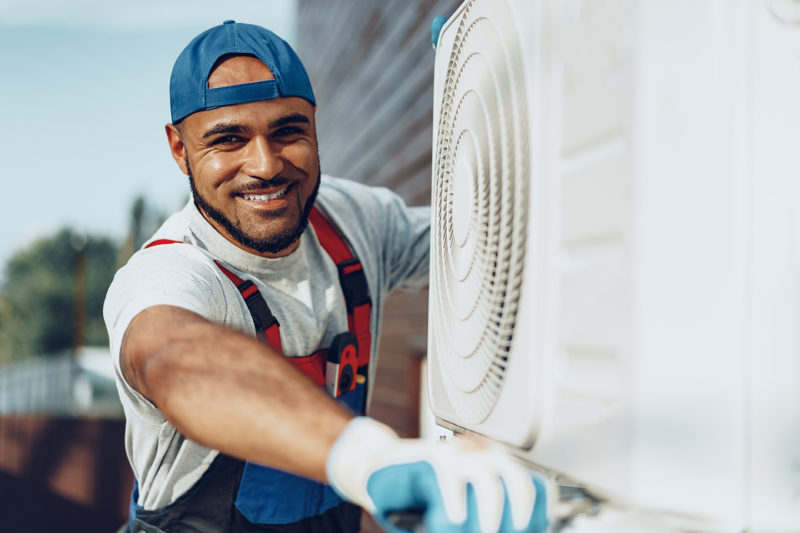When the scorching heat of summer arrives, a well-functioning air conditioning system becomes your ultimate savior. However, just like any other appliance, air conditioners can encounter problems over time. The good news is that with a little knowledge and guidance, you can handle many air conditioning repair tasks yourself or know when it’s time to call in the professionals. In this comprehensive guide, we’ll delve into the world of air conditioning repair, offering insights, solutions, and expert advice for maintaining a comfortable and cool indoor environment.
Air Conditioning Repair: A Detailed Overview
Air conditioning systems are complex appliances that require regular maintenance and occasional repairs to ensure optimal performance. Here, we’ll explore a wide range of topics related to air conditioning repair to help you better understand how to keep your AC unit running smoothly.
Common Signs of Air Conditioning Problems
Spotting the early signs of air conditioning issues can save you from potential breakdowns during the hottest days of the year. Here are some common indicators that your AC unit might be in need of repair:
- Uneven cooling throughout the house.
- Weak airflow from the vents.
- Unpleasant odors when the AC is running.
- Strange noises coming from the unit.
- Frequent on/off cycling.
Diagnosing Air Conditioning Problems
Before diving into repair solutions, it’s important to diagnose the underlying issues correctly. Some problems may have simple solutions, while others might require professional intervention. Here’s how to identify the root causes of your AC problems:
- Check the Thermostat: Ensure that your thermostat is set to the desired temperature and mode. Sometimes, issues can arise from incorrect settings.
- Inspect Air Filters: Dirty or clogged air filters can obstruct airflow, reducing the efficiency of your AC unit. Regularly clean or replace filters to maintain optimal performance.
- Examine the Refrigerant Levels: Low refrigerant levels can lead to insufficient cooling. If you suspect a refrigerant leak, it’s essential to call a professional technician to address the issue.
- Clean the Condenser Coils: Dirty condenser coils can impact heat exchange and cooling efficiency. Gently clean the coils to remove dirt and debris.
- Check for Airflow Obstructions: Obstructions in the vents or ducts can hinder airflow. Make sure there are no blockages preventing proper air circulation.
DIY Air Conditioning Repair Tips
While some repairs are best left to professionals, there are several tasks you can handle yourself to keep your AC unit in top shape. Here are a few DIY air conditioning repair tips:
- Cleaning the Evaporator Coil: Dust and debris can accumulate on the evaporator coil, reducing its efficiency. Gently clean the coil using a soft brush or a vacuum cleaner.
- Clearing the Condensate Drain Line: Over time, the condensate drain line can become clogged, leading to water leakage. Use a mixture of bleach and water to clear the line.
- Replacing Air Filters: Regularly replace air filters to ensure proper airflow and prevent dust from entering the system.
- Straightening Bent Fins: Bent condenser fins can obstruct airflow. Use a fin comb to gently straighten them out.
When to Call a Professional
While DIY repairs are useful, some issues require the expertise of a trained technician. Here are situations where it’s best to call in a professional air conditioning repair service:
- Refrigerant Leak: Handling refrigerant requires specialized equipment and knowledge. A professional can safely identify and fix leaks.
- Electrical Problems: If you experience electrical issues such as tripped breakers or wiring problems, it’s crucial to let a professional handle the repairs to avoid safety hazards.
- Compressor or Motor Failures: These complex components are best repaired by professionals who have experience with the intricate workings of AC systems.
- Strange Noises: Unusual noises can indicate various problems. A professional can accurately diagnose the issue and provide the appropriate solution.
FAQs About Air Conditioning Repair
Q: Can I repair my air conditioner if it’s blowing warm air? A: Yes, you can check for simple issues like dirty filters or thermostat settings. If the problem persists, it’s best to consult a professional.
Q: How often should I clean the condenser coils? A: It’s recommended to clean the condenser coils at least once a year to maintain efficient heat exchange.
Q: Why is my AC unit freezing up? A: Freezing can result from issues like low refrigerant levels, poor airflow, or a malfunctioning blower motor. A professional can identify and fix the underlying problem.
Q: What’s the typical lifespan of an air conditioner? A: On average, air conditioners last around 10-15 years. Regular maintenance can extend their lifespan.
Q: Should I repair or replace my old AC unit? A: If the repair costs are significantly high and your AC unit is nearing the end of its lifespan, replacing it might be more cost-effective in the long run.
Q: How can I improve the energy efficiency of my air conditioner? A: Regular maintenance, sealing duct leaks, and upgrading to an energy-efficient model can all enhance AC efficiency.
Conclusion
Maintaining a functional air conditioning system is essential for a comfortable living environment, especially during the hot summer months. By understanding the common problems that can arise, diagnosing issues accurately, and knowing when to seek professional help, you can ensure that your air conditioner keeps you cool and comfortable all year round. Remember, a well-maintained AC unit not only enhances your comfort but also contributes to energy efficiency and lower utility bills.


